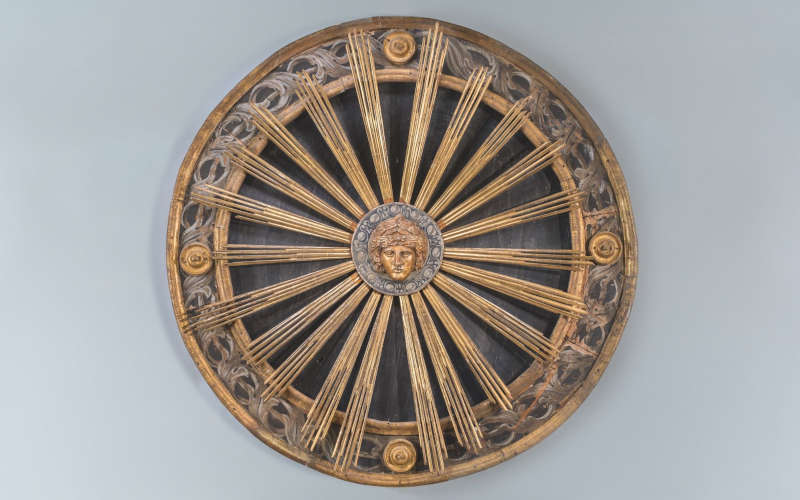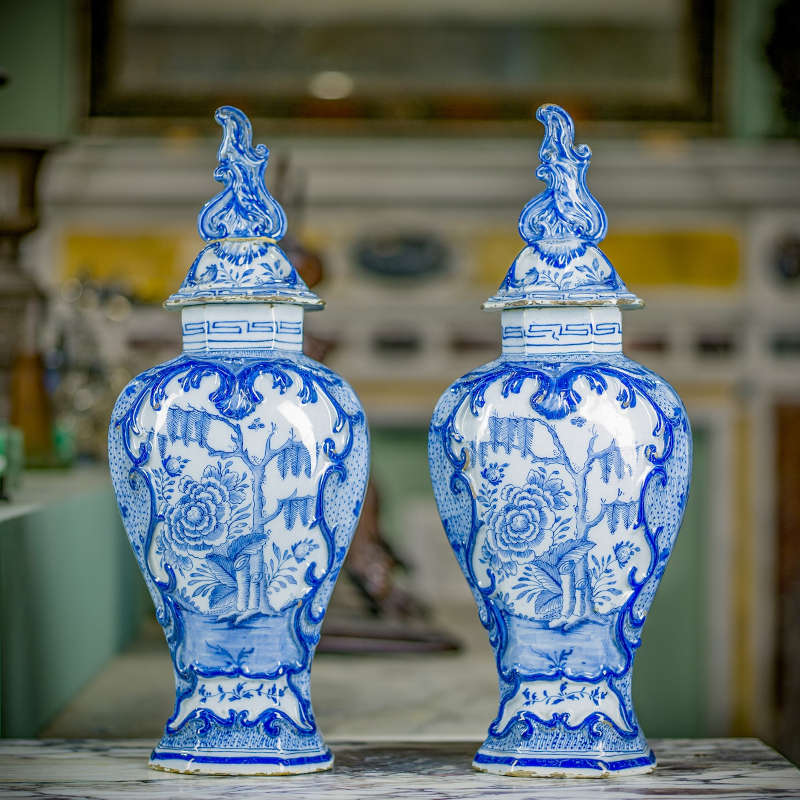The antique industry has evolved over time, in step with online auctions and platforms such as eBay
Selling trinkets and covetable items is a great way to line your pocket.
The antique industry has evolved over time, in step with online auctions and platforms such as eBay. It’s now easier than ever to trade your collectibles, whether you're selling antique clocks or antique furniture.
Before you part with highly desirable items, set yourself up for success with these selling tips from industry experts. Here's our advice on how to sell antiques.
How much is my antique?
You should value your items as accurately as possible, with the information available to you
Let’s get straight to the finances. After all, if you’re reading this article, you’re probably seeking to make a little money. Accurate antique valuation is key.
You should value your items as accurately as possible, with the information available to you. Don’t try to deceive anyone in the antique business, as a trained eye can spot ingenuity. Plus, the internet makes it very easy to discover the true value of your item.
You should try to collate comprehensive information about your antiques before selling them. Nothing undermines a healthy price tag like a buyer schooling you on your own piece.
Survey the key features of your antique, including its style, material and period of origin. With this information, as well as any maker marks, you can hit the books to discover the true worth of your trinkets.

× 
If you prefer a traditional antiquing experience, visit an antique store to compare items of similar ilk to yours
You can find basic guidelines in general reference books on antiques, which may be found at your local library.
Online price guides are also brilliant reference points when buying and selling antiques.
The most reputable site is considered to be Kovels.com. Kovels allows you to filter by item type, such as ‘Clocks and Watches’ or ‘Tools and Desk Accessories’, to help you quickly find comparable antiques.
Once you’ve studied your own items, you should check the going rate for similar items. Auction websites may give you a ball-park figure for antique valuation, but remember that these sites are highly competitive, with the goal of selling items quickly, so the price tag may skew downwards.
If you prefer a traditional antiquing experience, visit an antique store to compare items of similar ilk to yours. You may also gain better insight into artistic movements and manufacturing by chatting to seasoned antique stores' owners.
Three types of antique valuation
Once you’ve contextualised your antique, you should have a value bracket in mind. It’s important to also understand the different types of value that you can assign to your antiques.
Auction value – this will correspond with the desirability of your antique. Rare and valuable items are often sold for more at auction houses, where people may be willing to spend more on them.
However, commonplace items won’t drive the same price point at auction, and may sell at retail value.
Retail value – you could sell your antiques at retail value if they aren’t that rare or are low value.
However, you should remember that you may need to undercut retail value when selling to an antique dealer, as dealers won’t buy items if they can’t make a profit on them.
Insurance value – this is the amount needed to replace your item if it was stolen or destroyed. It’s useful to be aware of this figure if your antique is especially valuable.
Showcasing your antiques
You can save money by taking your own photographs, but bear in mind that these images should be high quality, in order to portray your items favourably
Once you’ve set a value, you should think about how you will present your antiques for sale.
You can save money by taking your own photographs, but bear in mind that these images should be high quality, in order to portray your items favourably.
Ensure photographs are well-lit, with natural lighting if possible. Take numerous detailed shots of your antiques from a variety of angles, and keep the subject in focus.
If your item boasts unique details or maker’s marks, you’ll definitely want to capture these, as they can instantly inflate the value.

× 
Selling antiques: your options
If you want to sell your antiques you have a variety of options available to do so. These range from auctions, private sales, selling to antique dealers or even deciding to sell antiques online via an online store like eBay.
Auction: you can sell anything at an auction house, however, we advise that rare, high-end or medium items may be best suited to this arena.
This is because there’ll be a large buyer base to appreciate quality items (especially when the auctions are listed on sites such as the-saleroom.com, which acquires large international audiences).
Bear in mind that you will encounter auction associated fees, including a seller’s fee, which is usually between 10-20% of sale value.
Private sale: private sales are desirable as you can negotiate with your buyer directly, and know where your item is going.
The drawback is that there’s limited exposure with private sales, and you may have to ship the item yourself.
Selling antiques to dealers: selling antiques to dealers is highly convenient, as you’re likely to be paid immediately and transportation will be taken care of.
As mentioned earlier, those in the antique trade need to make a profit on items they purchase, so be prepared to possibly undercut retail value when selling your antiques.
Selling antiques on eBay: when selling antiques online - for example, via an online marketplace such as eBay - be sure to list your items under titles that your buyers will be searching for and provide detailed and accurate item descriptions.
As tempting as it may be, don’t end your auctions early! Let your prospective buyers get excited about the prospect of winning your collectible.
Getting the best deal when selling antiques: conclusion
We hope our guide has helped you to consider the options available to you when it comes to selling your antiques.
At Westland London, we have over 50 years' experience dealing in prestigious antique fireplaces and fine decorative antiques. Why not browse our collection today?